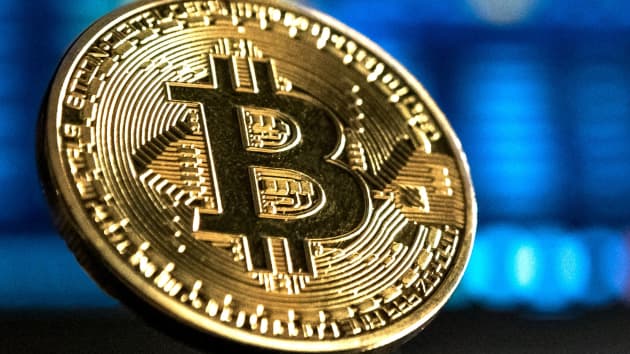Search result

Recently a reputed English IT journal brought news into everyone's notice about HTC's upcoming move. The Taiwanese Electronics brand HTC has revealed its plan to release a next-generation model of its blockchain-centric smartphone somewhere by the end of 2019. According to HTC's chief decentralized officer Phil Chen, the development is still in the process and aims to boost smartphones sales. If realized, this will also help to expand the company's blockchain echo system.
In sprint 2018, HTC first unveiled its plans for its first native blockchain phone. HTC Exodus will support multiple block chains, including Bitcoin, Ethereum networks, PCMag reported May 15. HTC Vive creator Phil Chen seem pretty positive about the possible outcomes after this phone is being launched. Chen said the Company's mission is to support the entire blockchain ecosystem in order to "help underlying protocols expand their base of dedicated nodes". Chen also mentioned that the upcoming premium phone will support "multiple blockchain protocols" such as BTC, Ethereum, Lightning Network (LN), and Definity Network.
The Android smartphone will feature a universal digital currency wallet as well as a secure hardware enclave. Chen also insisted that HTC Exodus would be highly secure and follow high standards of security and data protection. He said: "I want to see a world where the end consumers can truly own their data - browsing history, identity, assets, wallets, email, messaging - without the need of central authorities. As there isn't much information about Exodus right now, we can't estimate the price tag it might carry but Chen said that company may consider cryptocurrency as a means of payment for the upcoming blockchain powered smartphone.
The second-generation of HTC Exodus will extend its supported blockchain apps to browsing, messaging and probably to the social media. These new communication apps will be based on peer-to-peer connections instead of being routed via clouds. Chen referred to the major success of centralized consumer apps like Uber and Airbnb as an emerging sector of blockchain and decentralized technologies.

Bitcoin, the cryptocurrency that created the concept of blockchain, is also the largest and longest-running blockchain.
At present, interest in blockchain architecture is growing, especially in financial institutions, because Bitcoin actually mediates a huge amount of transactions and shows that it can be put to practical use. In that sense, all blockchain implementations are somehow influenced by Bitcoin.
Why is the blockchain aiming at decentralization and adopting a mechanism such as proof of work to form an ecosystem? To understand that, you need to go back to the origin of blockchain, Bitcoin. In this article, you would like to look back at the history and achievements of Bitcoin and consider the misunderstandings and expectations of the current blockchain.
What has Bitcoin accomplished?
Originally, Bitcoin was designed as a mechanism for mediating value exchanges without relying on arbitrage by state power or underlying assets. Blockchain was designed as a means to realize it.
In modern-day currencies, issuers including the central bank record liabilities on the books according to the outstanding balance. For electronic money, gift certificates, prepaid cards, etc., it will be necessary for the manager to make a provision according to the outstanding balance according to the system of each country. Get more detail about crypto-profit application.
However, Bitcoin works mechanically without the issuer or administrator. As a result, you succeeded in avoiding legal regulations that presume the existence of the issuer.
What has Bitcoin achieved by functioning without an issuer?
One is to realize a new mechanism in which a huge amount of currency issuance is generated by issuing coins and the operating cost as a currency is covered by this issuance.
With Bitcoin, the amount of computation required to issue a new coin is determined by the total computing power of participating miners. For this reason, when the number of participants is low, the currency can be efficiently obtained at a very low cost.
When the value of Bitcoin goes up, the market value of Bitcoin issued in the past goes up. The identity of the author who published the Bitcoin paper under the name of Satoshi Nakamoto is still unknown, but it is likely that he will have gained at least several billion yen in market value.
Since Bitcoin has no nominal issuer, it is not necessary to record the amount of issue on the book as the issuer's debt or to make a provision according to the issue balance. Even now, new bitcoins are generated about every 10 minutes, and the profits of issuing the currency are divided by miners those who provided computational resources for block chain data processing.
In this way, miners voluntarily operate an international settlement platform that "operates 24 hours a day, 365 days a year.
Another thing that Bitcoin, which has no issuer, has achieved is the value transfer independent of state regulation.
On this platform, you can easily transfer economic value just by creating a key pair at hand, without having to enter into a contract such as opening an account that requires identity verification.
Trading with Bitcoin is possible anywhere in the world as long as you have an Internet connection. As a result, it has become possible to take out assets freely even from emerging countries such as China where foreign exchange transactions are regulated.
It is said that about 90% of the mining of bit coins is conducted in state. That's because investing in bitcoin mining has become one of the few ways to circumvent foreign exchange regulations and legally transfer domestic assets abroad.
Bitcoin was also used as a way to avoid taxation of deposits by the state. Cyprus, which suffered a financial crisis in the euro area due to Greece's debt exemption, closed its deposits and taxed about 10% in March 2013, at which time the capital flight from bank deposits in Cyprus Bitcoin was used as a means.
In Cyprus, it has become possible to pay the price of various things and services, including university tuition, with Bitcoin. Bitcoin is safer than bank deposits in fiat currency because it cannot be frozen freely due to national circumstances, and as a result, it became a capital flight destination with an exchange rate independent of fiat currency.
© 2023 YouMobile Inc. All rights reserved





